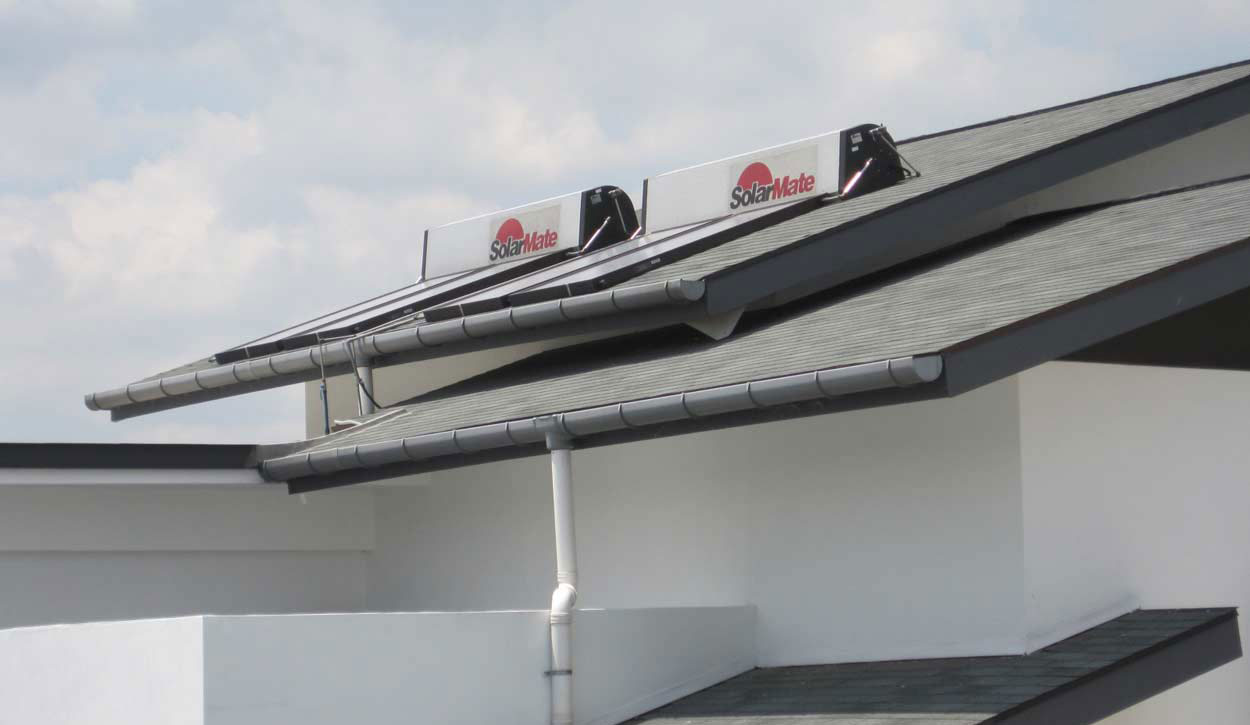Building energy-efficient houses has become more popular than ever with significant advancements in technology and various kinds of heaters. In larger homes and residential properties, water heating is a serious issue because it constitutes a large portion of energy consumption. Therefore, it is important to distinguish between the two most popular types of water heaters: solar and electric. The differences will help you when choosing between these water heaters.
Electric Water Heating System
There are three main types of electric hot water system:
-
Conventional heaters have insulated tanks capable of holding up to 80 gallons of water. They also include electrical resistance heating components. The best traditional electric water heating systems come with plenty of insulation to prevent heat loss.
-
Tankless electric water heater systems are also available that heat the water only when the water is needed. The benefit of using these systems is that there are minimum standby losses involved. However, compared to commercial solar water heaters, tankless water heaters are expensive because they need a significant amount of current and voltage to heat the water.
-
Heat water pumps are a common way of heating water by extracting the heat out of the air from the spot where the heating system is situated. The cost of electricity in such systems is very high because electricity is used to transport the heat from one location to another.
Solar Water Heater System
Commercial solar water heaters have been used around the world for a few decades now. These systems are very cost-effective and energy-efficient. Partial solar water heating systems are also common because they heat the water only when the sun is shining. As a result, it is not necessary to replace an existing water heating system. You can also use its solar water heaters as a backup.
A traditional design of the solar water heaters is that it has copper tubes installed on your property’s roof. These tubes are filled with water. Solar thermal collectors can take up to 80 square feet of roof space. When the sun shines on the copper tubes, the water heats up because copper is an excellent conductor. The hot water then goes into the storage tank with a heat exchanger connected to the water supply.
Commercial solar water heaters are different from an electric water heating system. Some of these differences are:
-
Solar water heating systems heat water in direct sunlight only under certain climatic conditions.
-
Gas or electric boosters are needed to make the heating systems work at night or in cold weather.
-
The installation costs of solar water heaters can be much more than electric heaters. However, the investment is worth it because once the system is properly installed, it will save you a lot of money on your power bills.
Benefits of Commercial Solar Water Heaters
An efficiently installed solar water heating system is much more beneficial than an electric water heater for the following reasons:
1. Lower Electric Bills
You can save a lot of money on your energy bills using an energy-saving solar water heater system. In terms of cost-efficiency, commercial solar water heaters are better than all other types of heaters like electricity, gas, or other fuel. Over time, the savings will make up for the high initial investment in a solar water heater.
2. Less Maintenance
Once a solar water heating system is installed, there is very little maintenance needed. You can find many specialists and contractors who can carry out the maintenance for you. It usually includes changing the circulated antifreeze fluid and inspecting the entire system once in a while. Generally, they require less maintenance, so they are a reliable long-term investment over inefficient water heating systems.
3. Eco-friendly Solution
Solar water heating systems are the most eco-friendly heating solution in the industry. These systems ensure that no greenhouse gases are released, and the process does not cause pollution. Moreover, these systems use a renewable source, sunlight, that ensures you are using a zero-emission resource to meet your needs.
Final Thoughts
While it is true that both solar and electrical water heaters have their own set of advantages and disadvantages, solar water heaters are more efficient and beneficial. They require minimum maintenance, which makes them an excellent long-term investment. Moreover, many people, organizations, and countries are moving towards implementing eco-friendly products and processes in every aspect of life. Solar water heating solutions are eco-friendly and energy-efficient, making them suitable for fulfilling your water heating requirements. For more information, feel free to get in touch with us.

